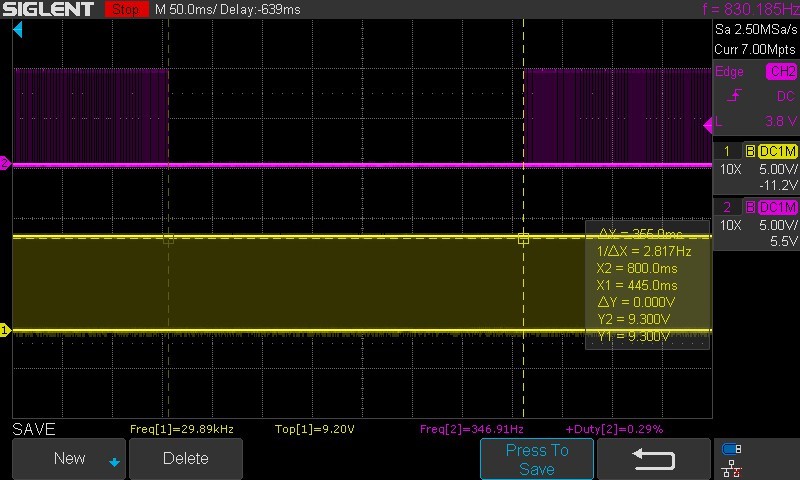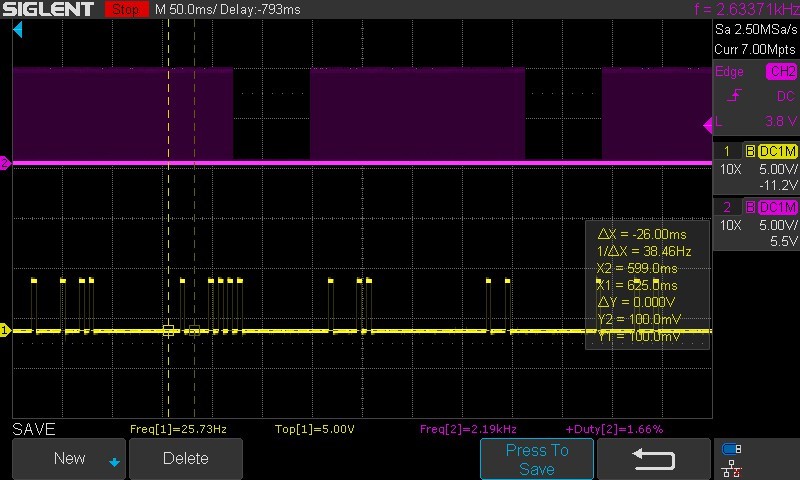I'm using the CD4059AM in an application where jam inputs 1 through 7 are controlled by an MCU to give different divisors. Multiple inputs can change at a time, and they should all change relatively instantaneously. For a given input, the shortest on or off time expected is around 8ms, i.e. the fastest changing input would be 8ms on, 8ms off, etc.
For the most part the circuit is working as expected, but I'm experiencing occasional bursts of the output flat-lining at GND. During this time, the input is still active, so the signal is being lost as it goes through the CD4059. From what I've seen, the bursts last anywhere from about 150ms to 600ms.
I can only imagine that changing the jam inputs so quickly is producing some kind of state that the counter doesn't like. This theory is supported by the fact that if I slow down the rate at which the inputs change, the behavior goes away. But I don't see anything in the datasheet that talks about this specific type of limitation. So I'm wondering if, first of all, it does make sense as an explanation that the inputs are changing too quickly, and secondly, if that can be a limiting factor then what's the safe region of operation? And would there be any way to improve it?
By the way, I'm almost positive it's nothing to do with the MCU program, because I also built a first iteration of this project using a parallel output ADC to control the jam inputs and I'm getting the exact same issue.



